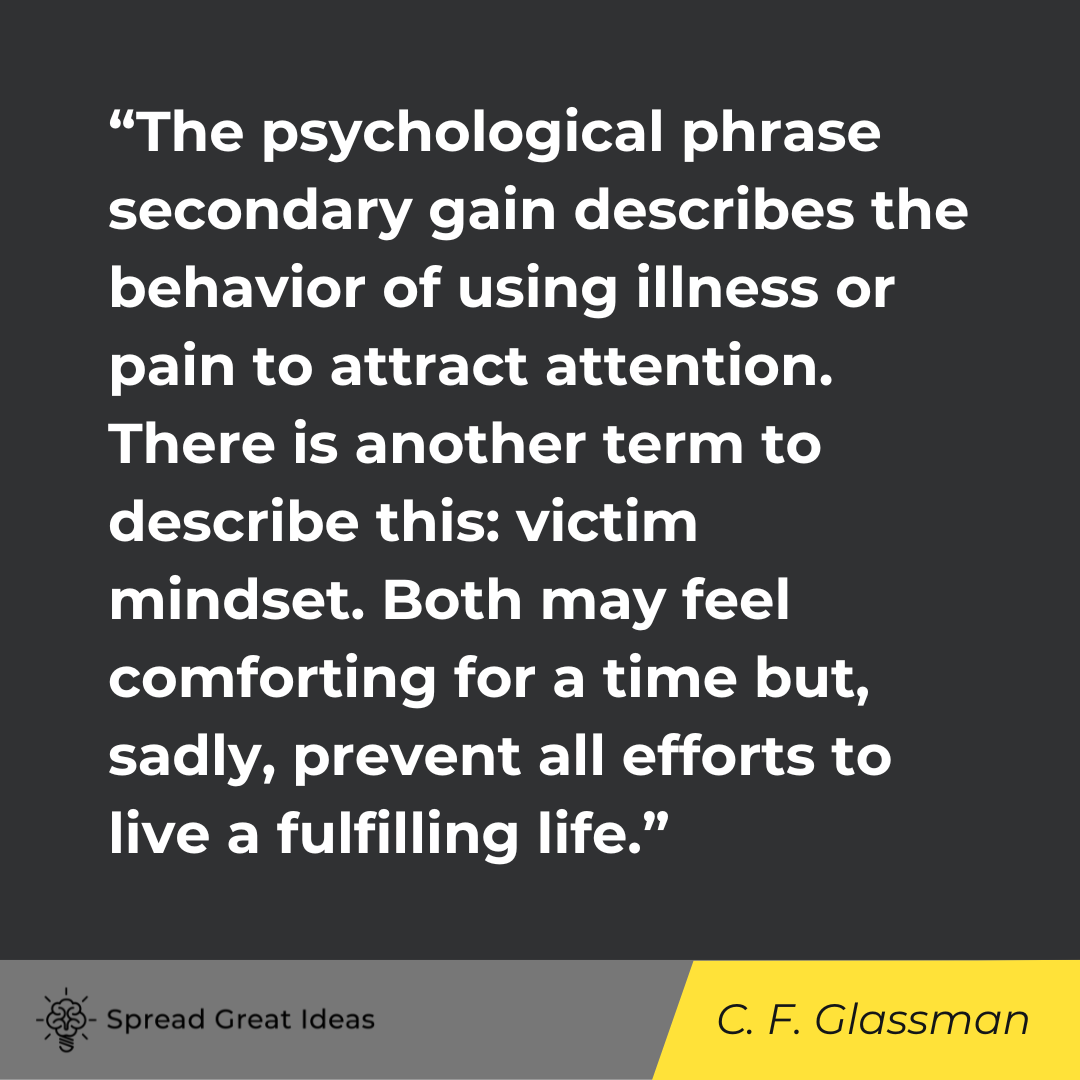Table of Contents
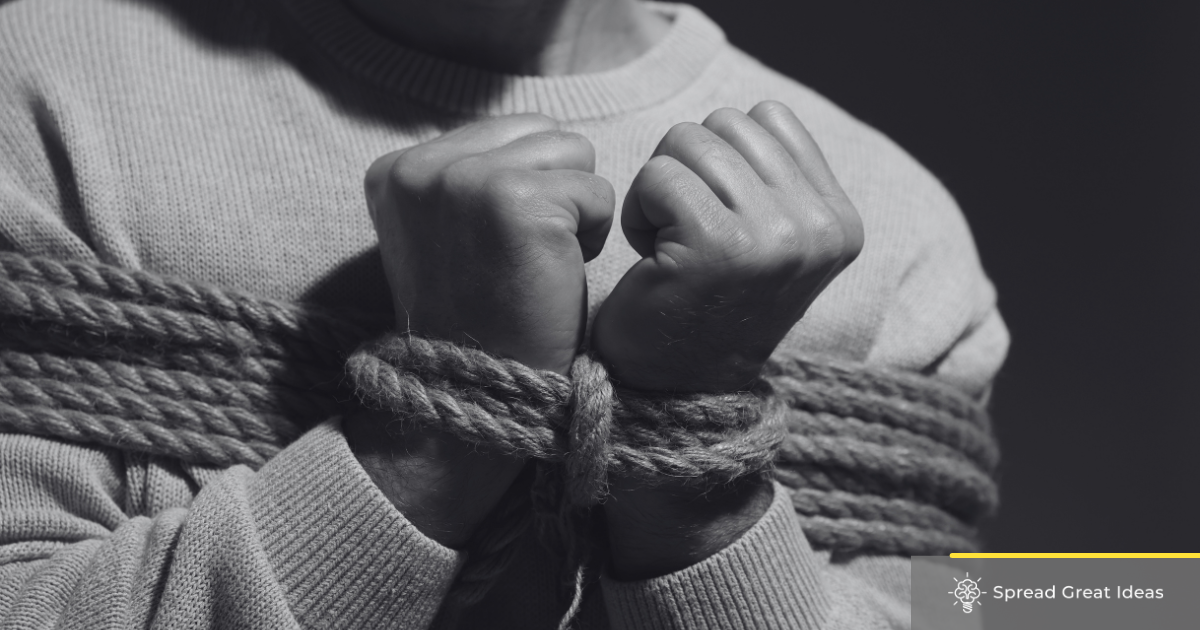
In the tapestry of human existence, the way we perceive ourselves and the world around us often defines the chapters of our lives. How we choose to interpret adversity, challenges, and setbacks can have a profound impact on our personal growth, relationships, and overall well-being. At times, some individuals find themselves trapped in a cycle of “playing the victim” – a mindset where they see themselves as perpetual sufferers and attribute the cause of their problems to external forces.
To shed light on the complexities of this mentality and its consequences, we’ve curated a collection of thought-provoking quotes from various sources. These quotes not only unveil the nature of playing the victim but also offer insights into the power of perspective and the importance of taking control of our own narratives.
This compilation aims to serve as a source of reflection, inspiration, and empowerment. As we explore these quotes, we encourage you to consider how your own perspective shapes your life’s story. Are you the author of your narrative, or are you merely a character, a victim of circumstance?
Join us in this journey as we dive into the world of playing the victim through the eyes of renowned thinkers, writers, and philosophers. Let these quotes be your guide to understanding the mindset, its limitations, and the transformative potential that comes with embracing a more empowering perspective. It’s time to turn the page and start writing your story as the hero, not the victim.
Steve Maraboli
“The victim mindset dilutes the human potential. By not accepting personal responsibility for our circumstances, we greatly reduce our power to change them.”
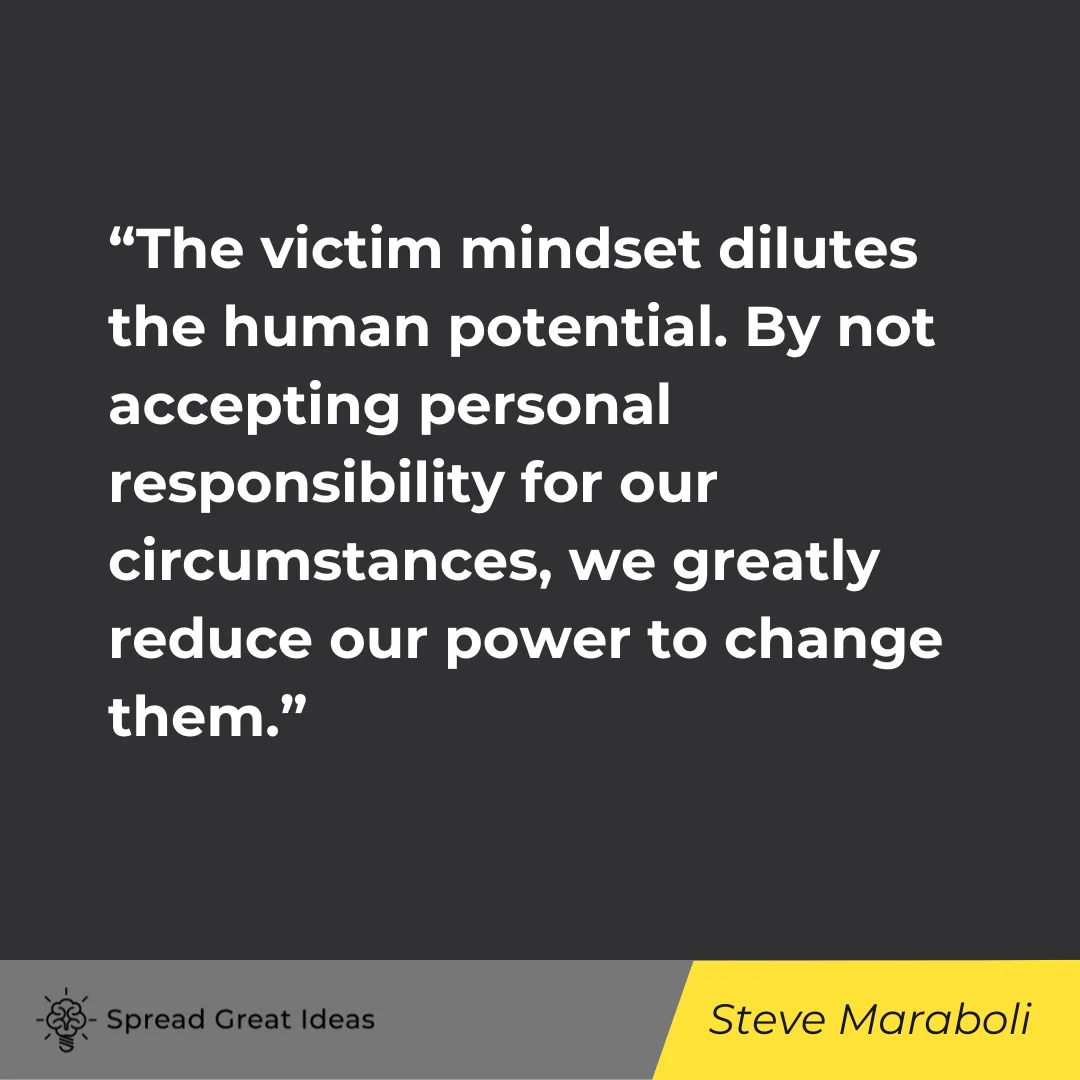
“Selfish people also tend to have victim mindsets… Their actions plant seeds of loneliness; then they cry upon the blooming.”
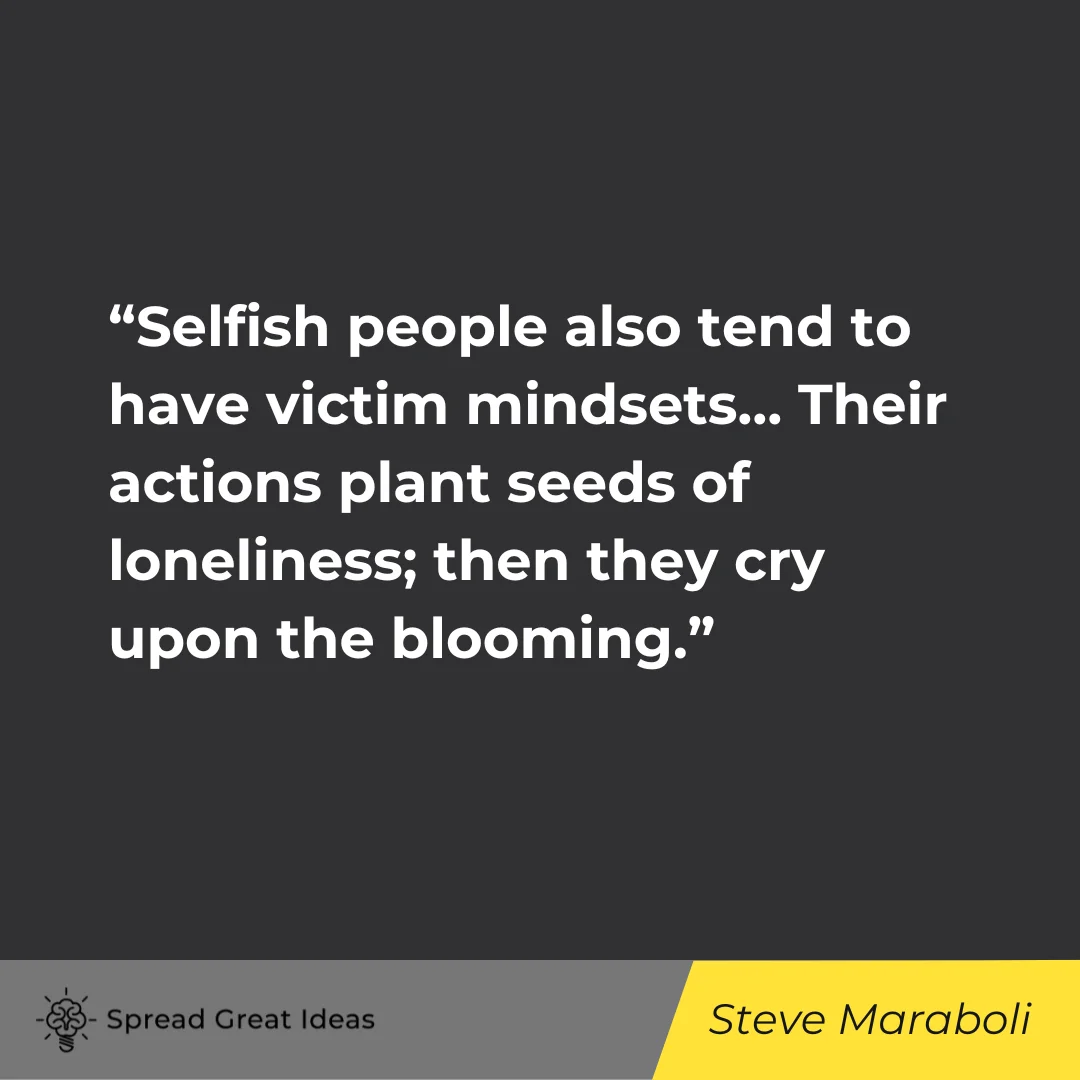
“The victim mindset will have you dancing with the devil, then complaining that you’re in hell.”
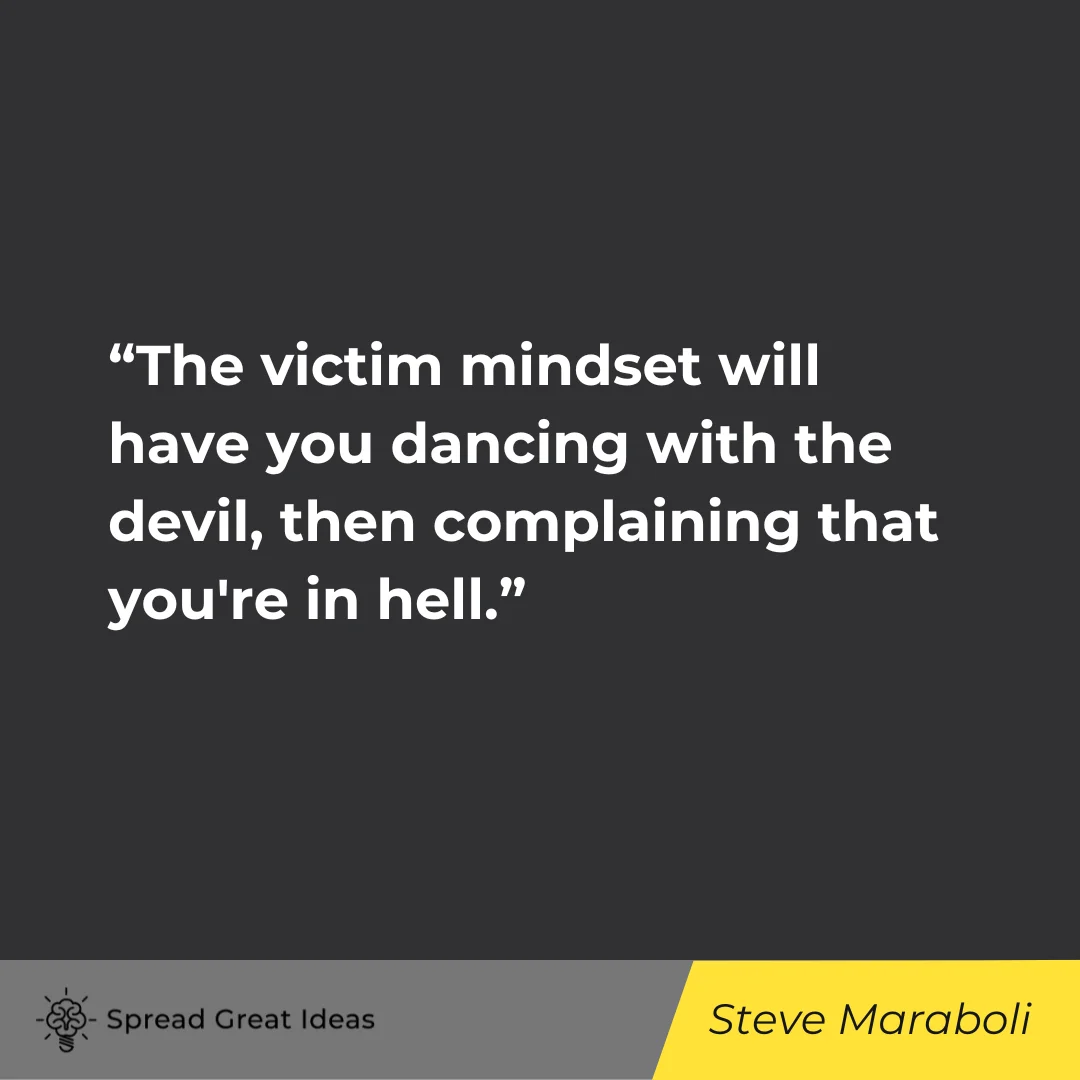
“Stop validating your victim mentality. Shake off your self-defeating drama and embrace your innate ability to recover and achieve.”
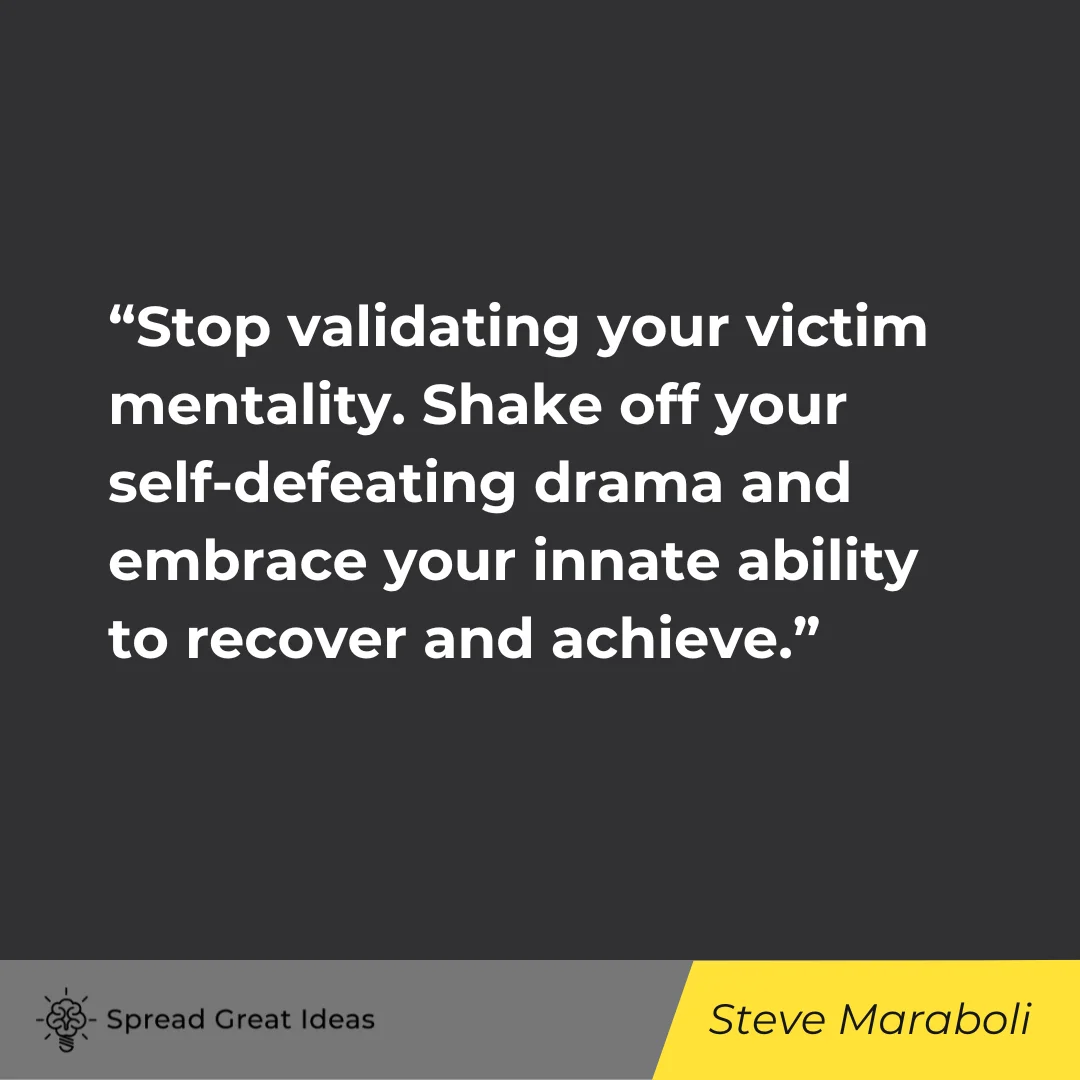
Joel Osteen
“You are not a victim. No matter what you have been through, you’re still here. You may have been challenged, hurt, betrayed, beaten, and discouraged, but nothing has defeated you. You are still here! You have been delayed but not denied. You are not a victim; you are a victor!”
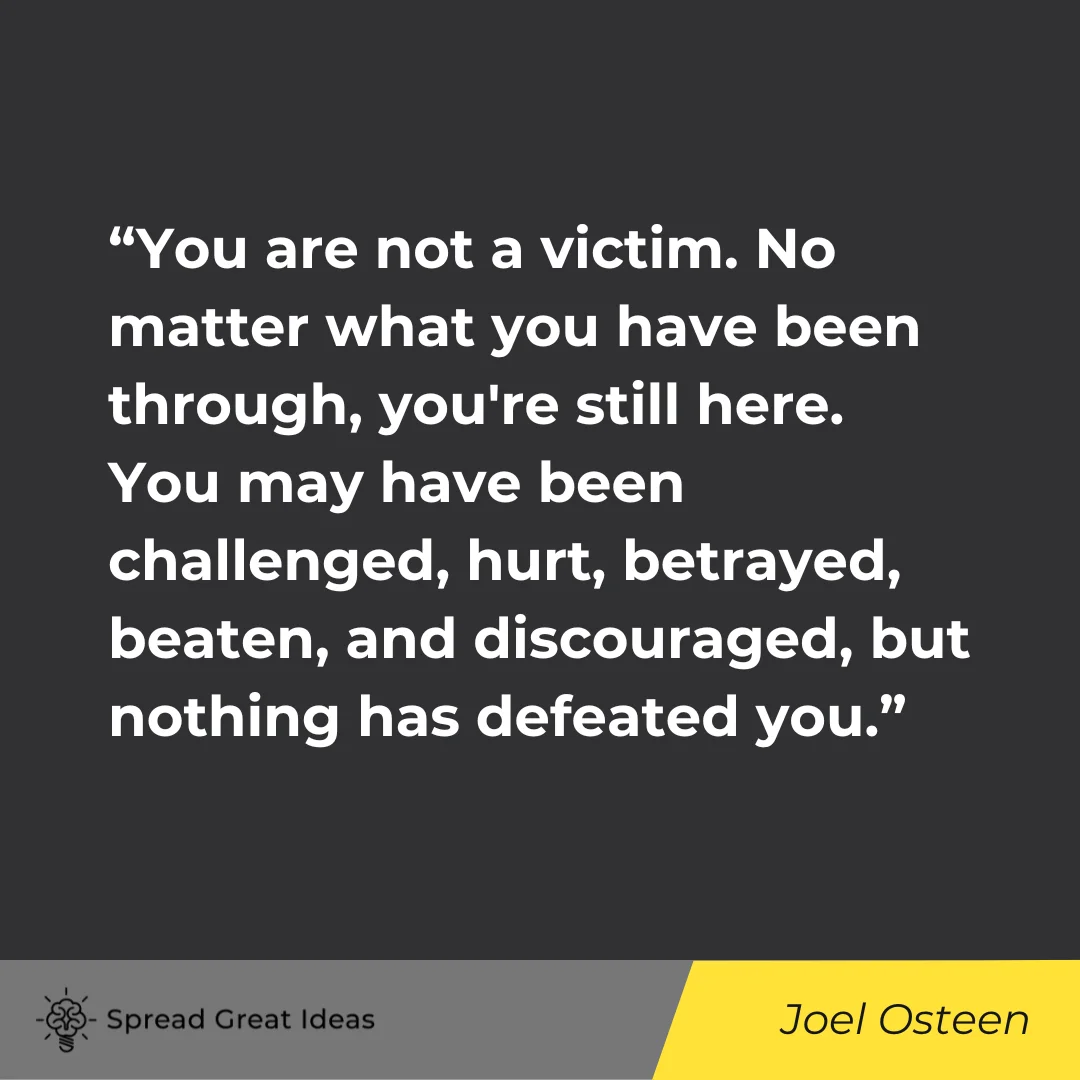
Anthon St. Maarten
“Empaths did not come into this world to be victims, we came to be warriors. Be brave. Stay strong. We need all hands on deck.”
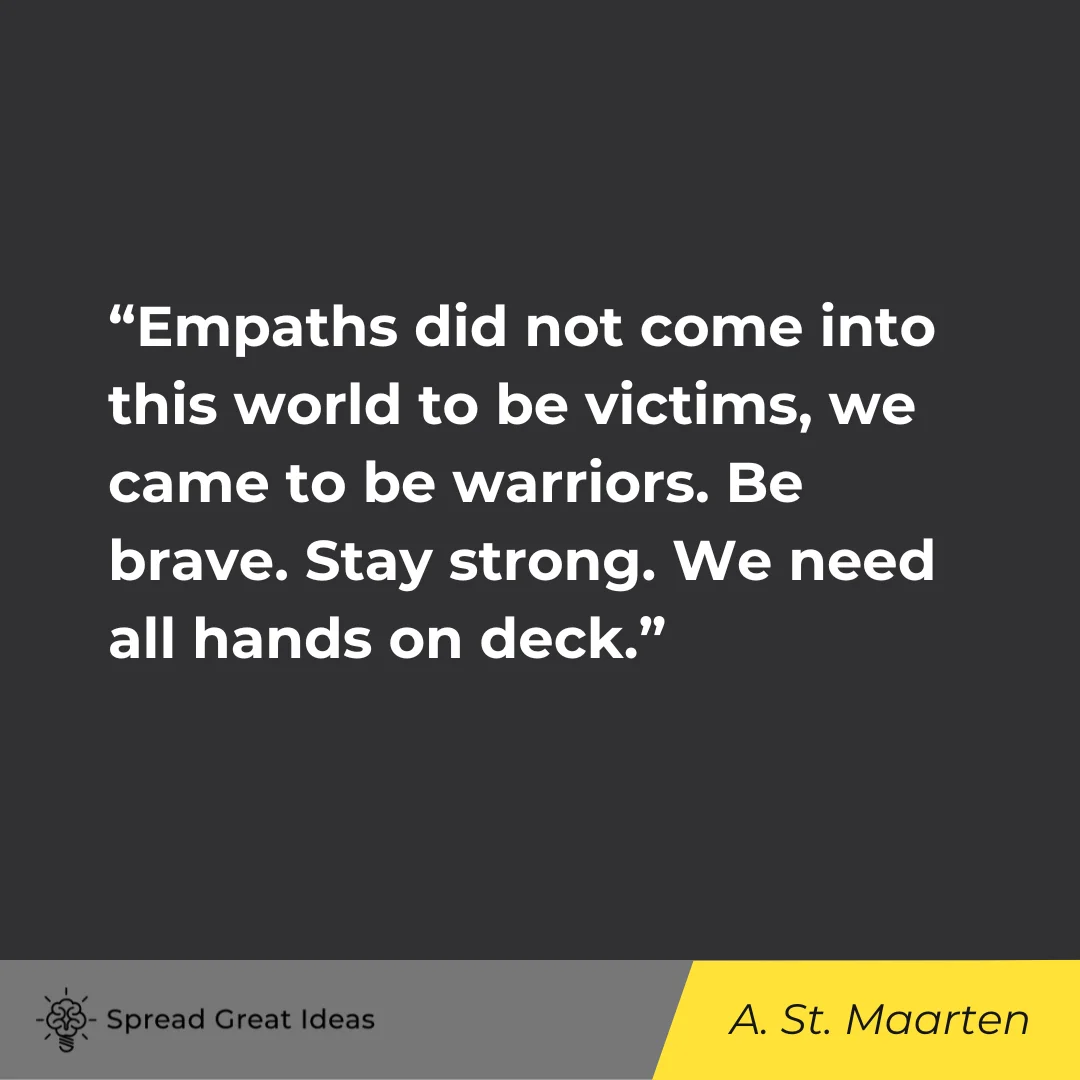
Seth Adam Smith
“Abandon the idea that you will forever be the victim of the things that have happened to you. Choose to be a victor.”
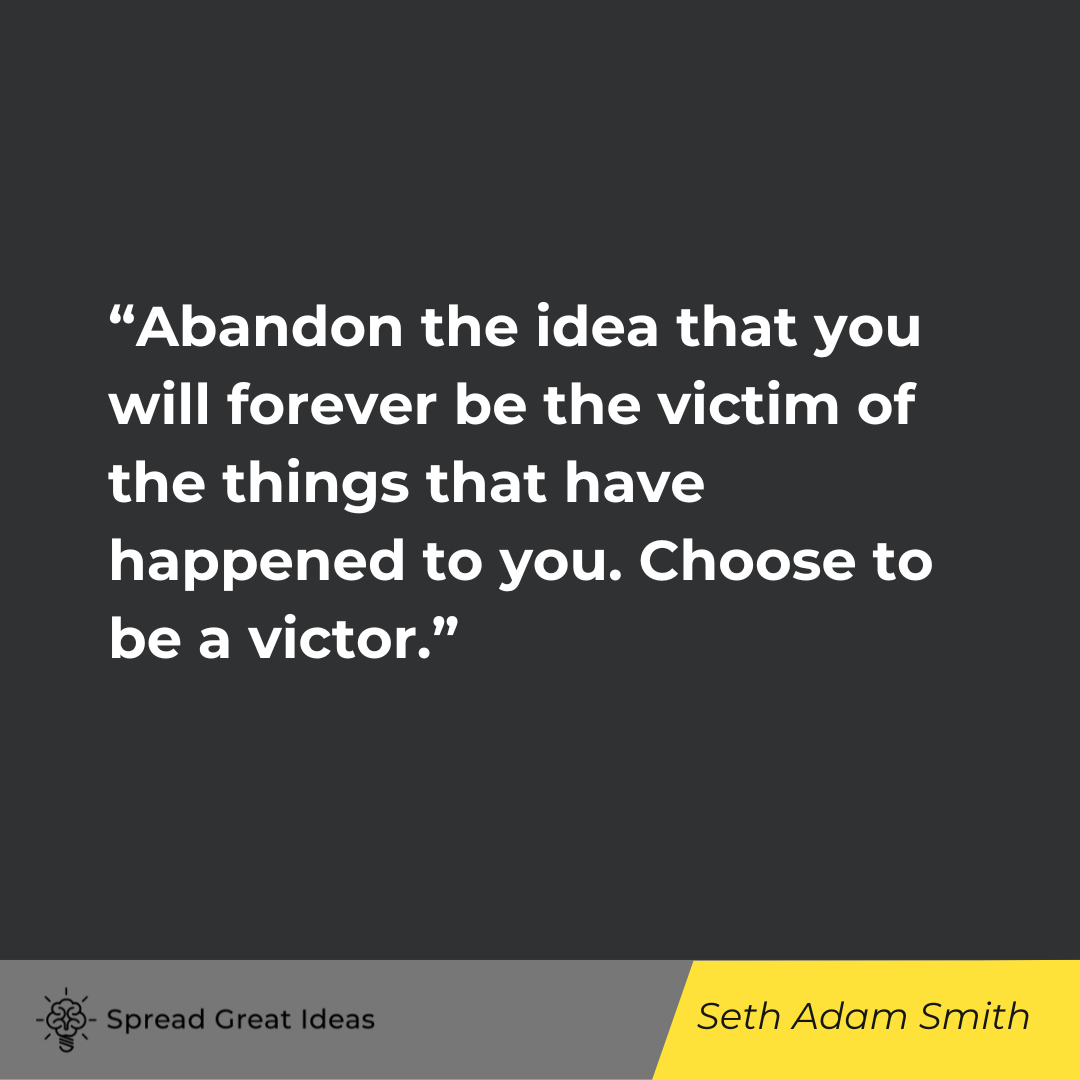
Stefan Molyneux
“Baseless victimhood is usually the last stage before outright aggression.”
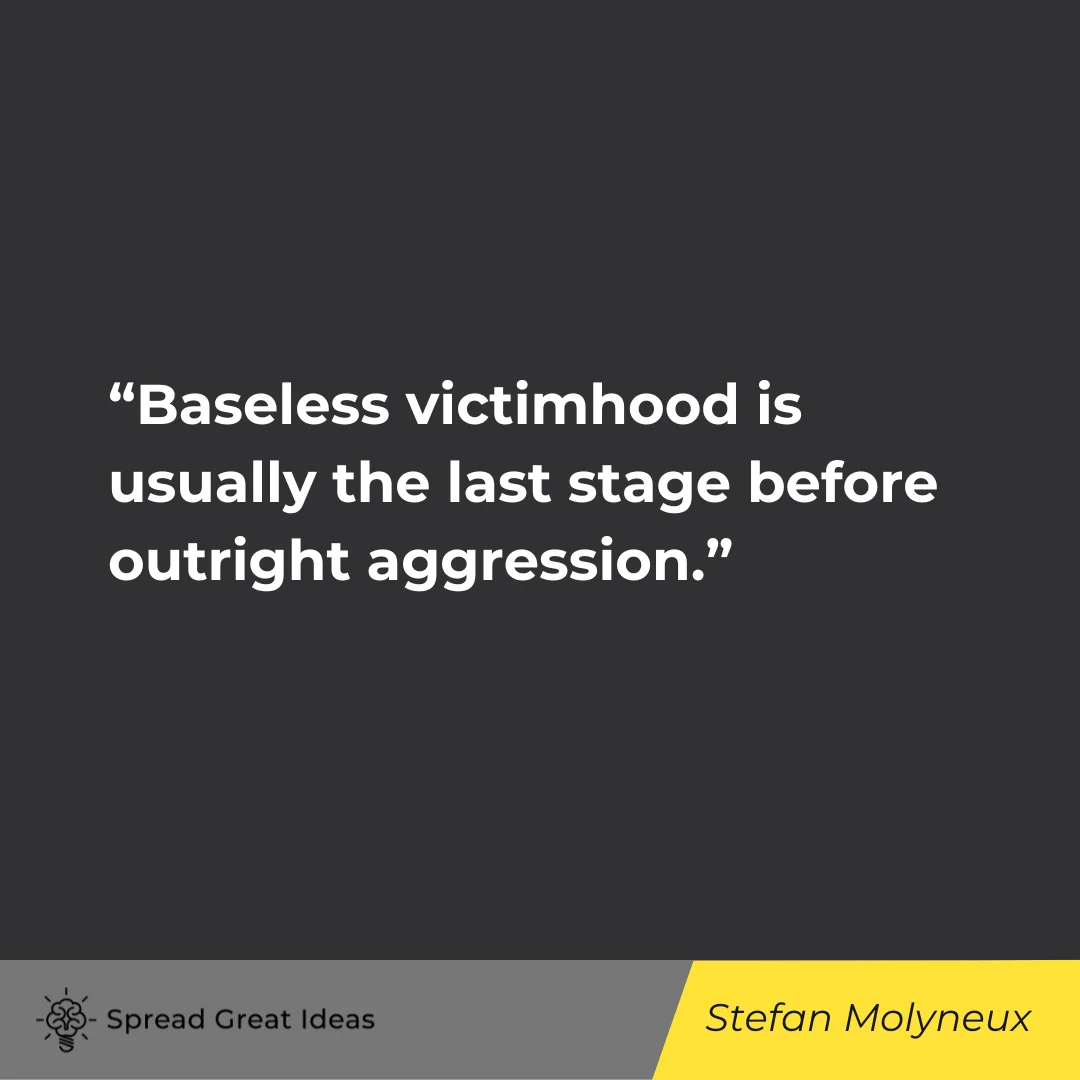
Michael Bassey Johnson
“Is life happening to you, or are you happening to life?”
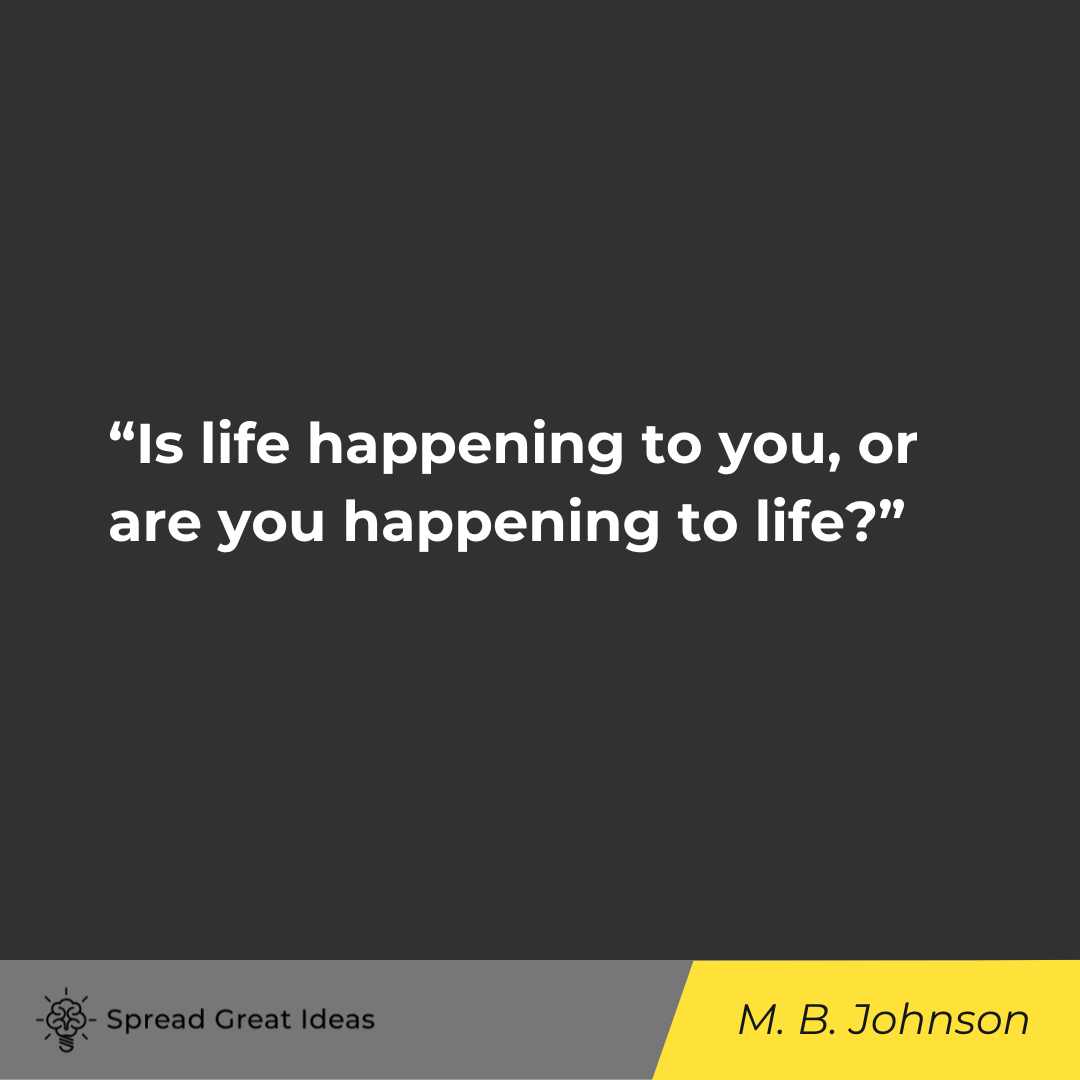
Jenny C. Bell
“Sometimes in our story we are the victim, sometimes the martyr and sometimes the villain.”
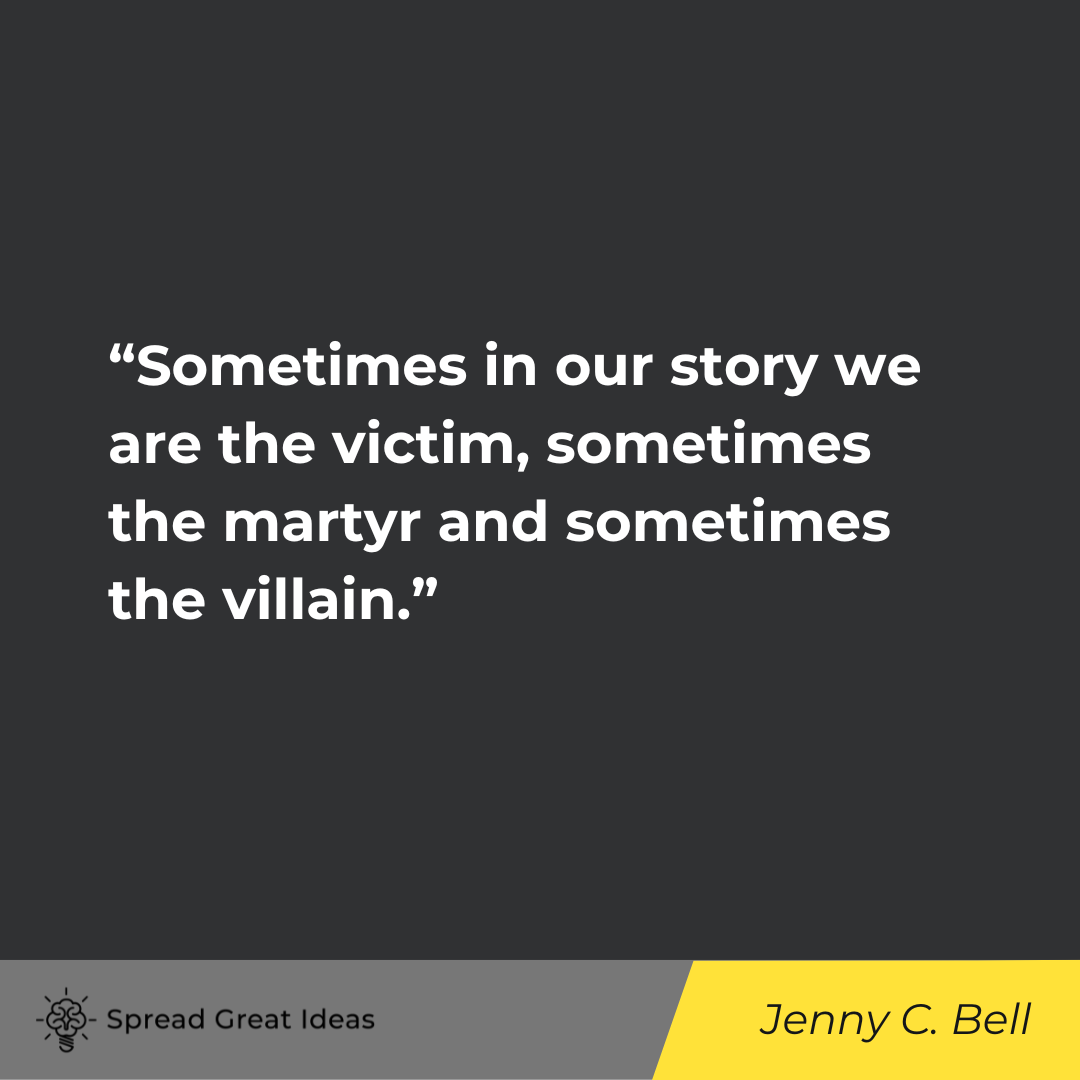
Frank Sonnenberg
“If you teach your kids to be a victim, you’ll rob them of hope.”
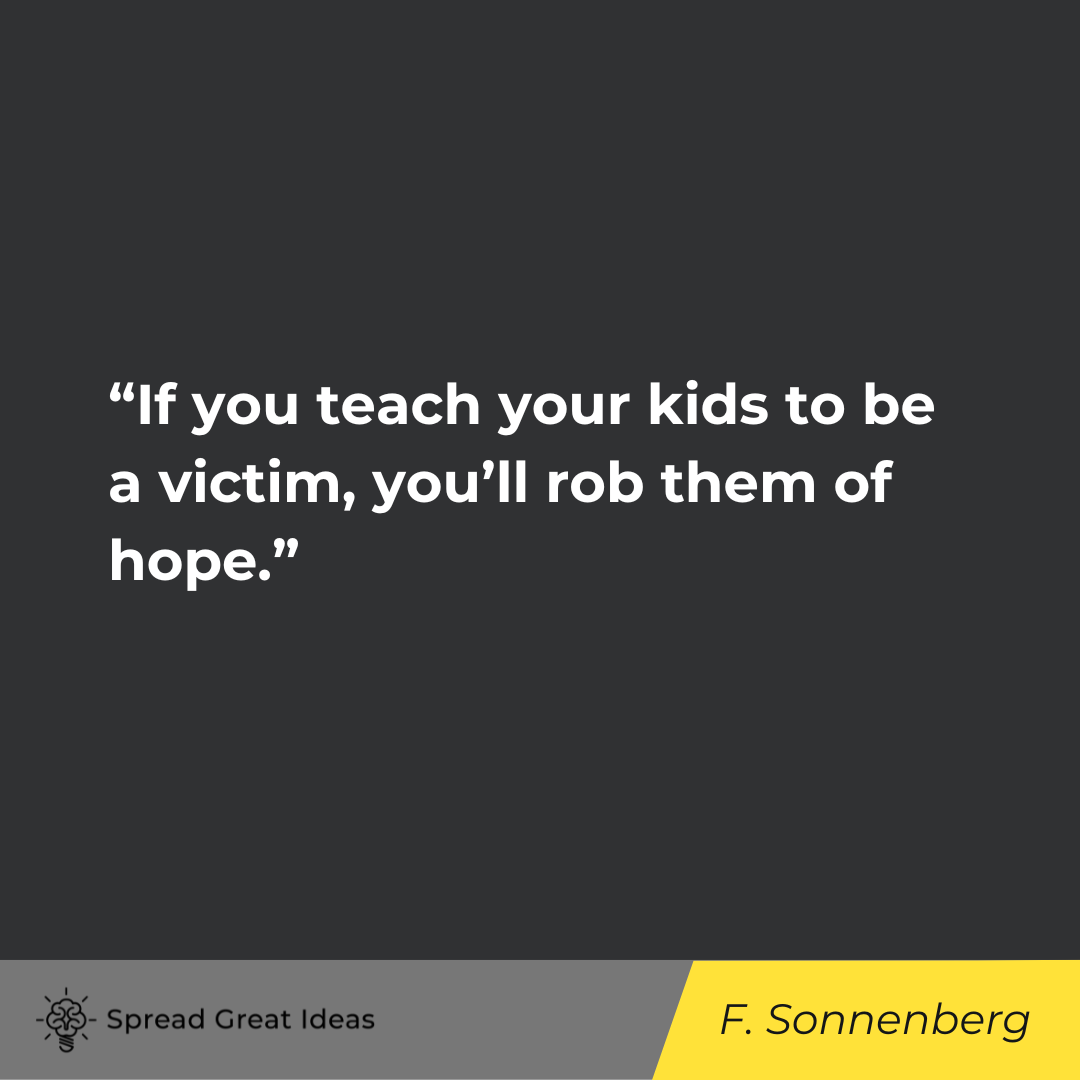
Carlos Wallace
“Rather than empowering themselves, some individuals choose to self-inflict wounds, allowing them to assume the role of the victim.”
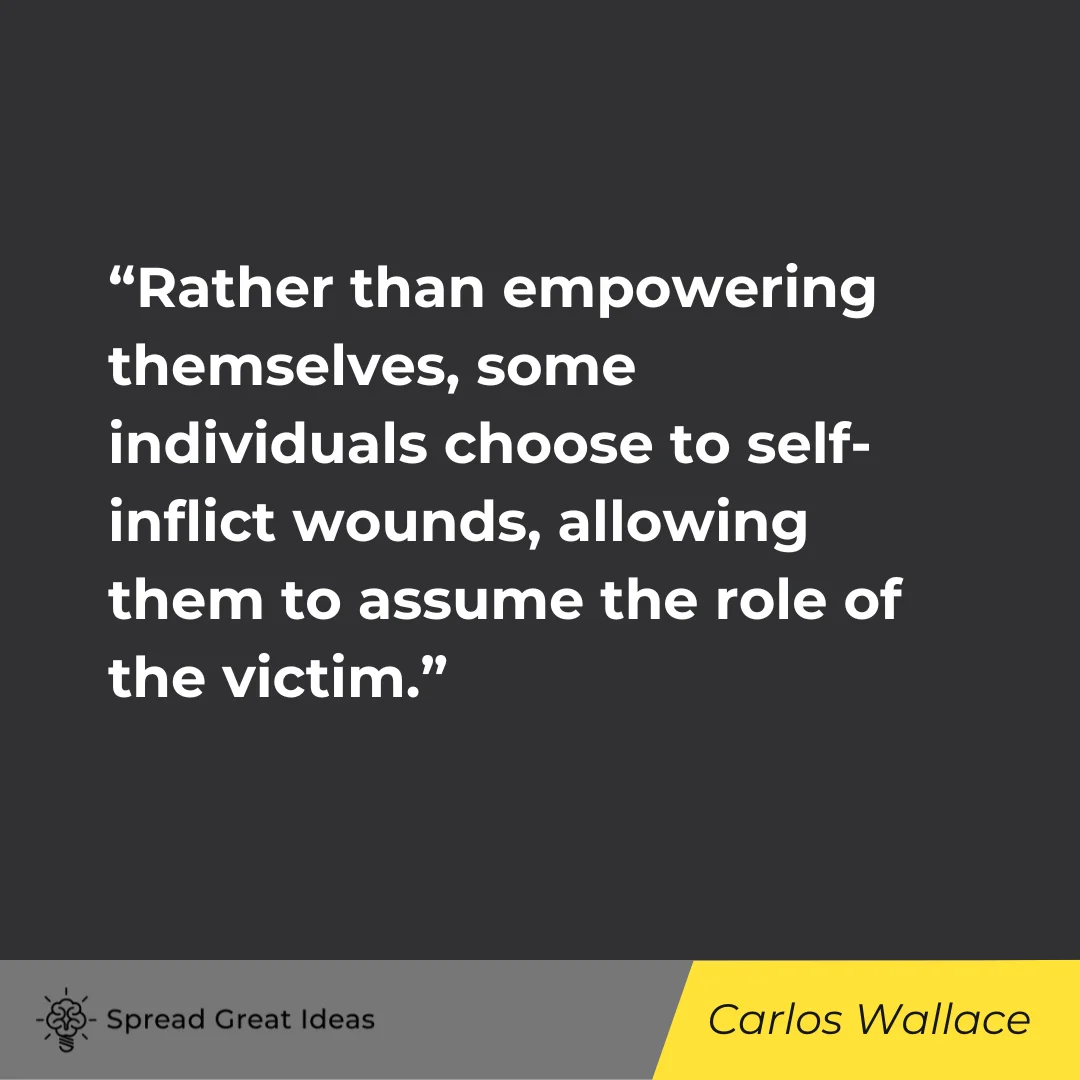
Shannon L. Alder
“You’re only a victim to the degree of what your perception allows.”
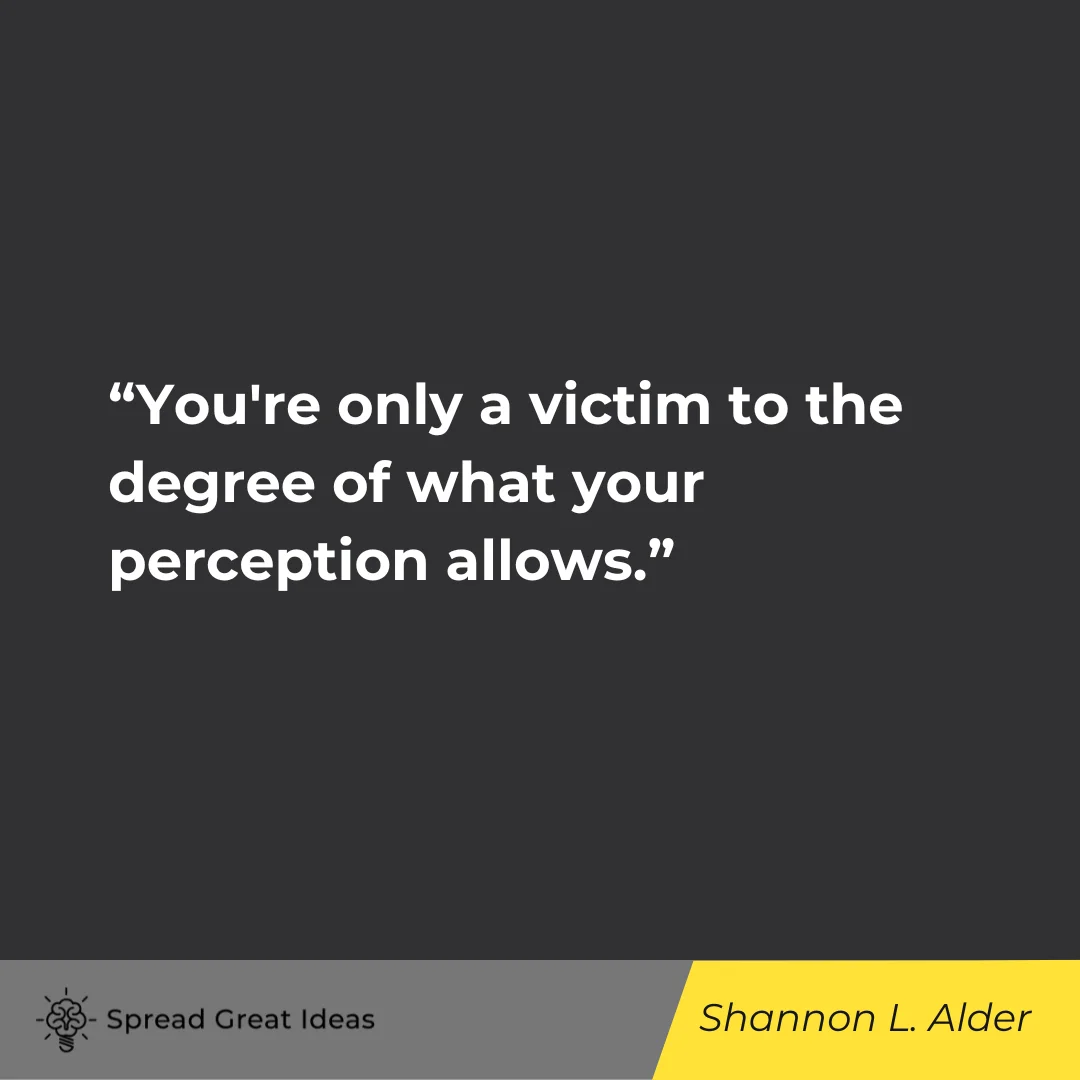
Sunny Dawn Johnston
“We all have a story. The difference is: do you use the story to empower yourself? Or do you use your story to keep yourself a victim? The question itself empowers you to change your life.”
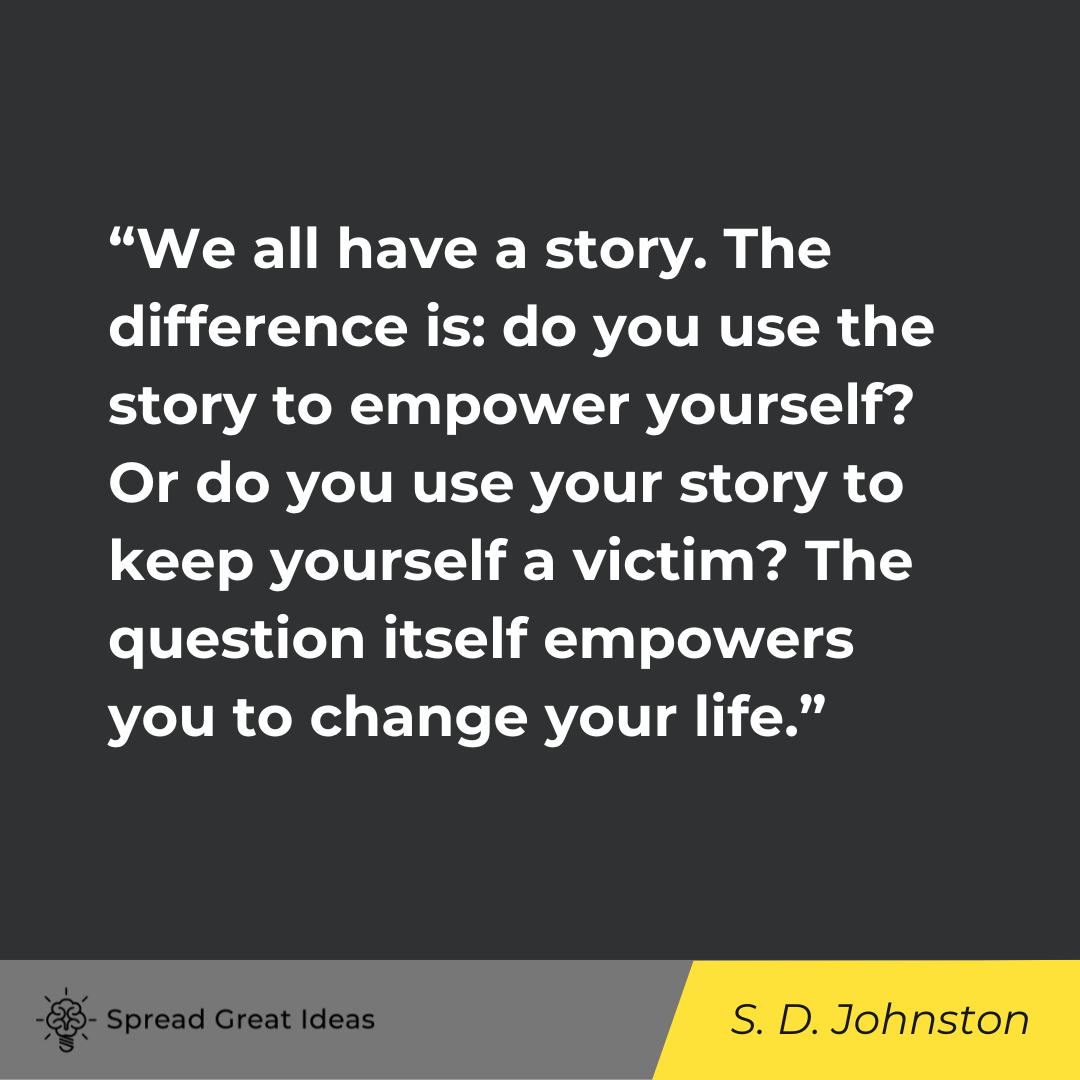
Charles F. Glassman
“The psychological phrase secondary gain describes the behavior of using illness or pain to attract attention. There is another term to describe this: victim mindset. Both may feel comforting for a time but, sadly, prevent all efforts to live a fulfilling life.”
